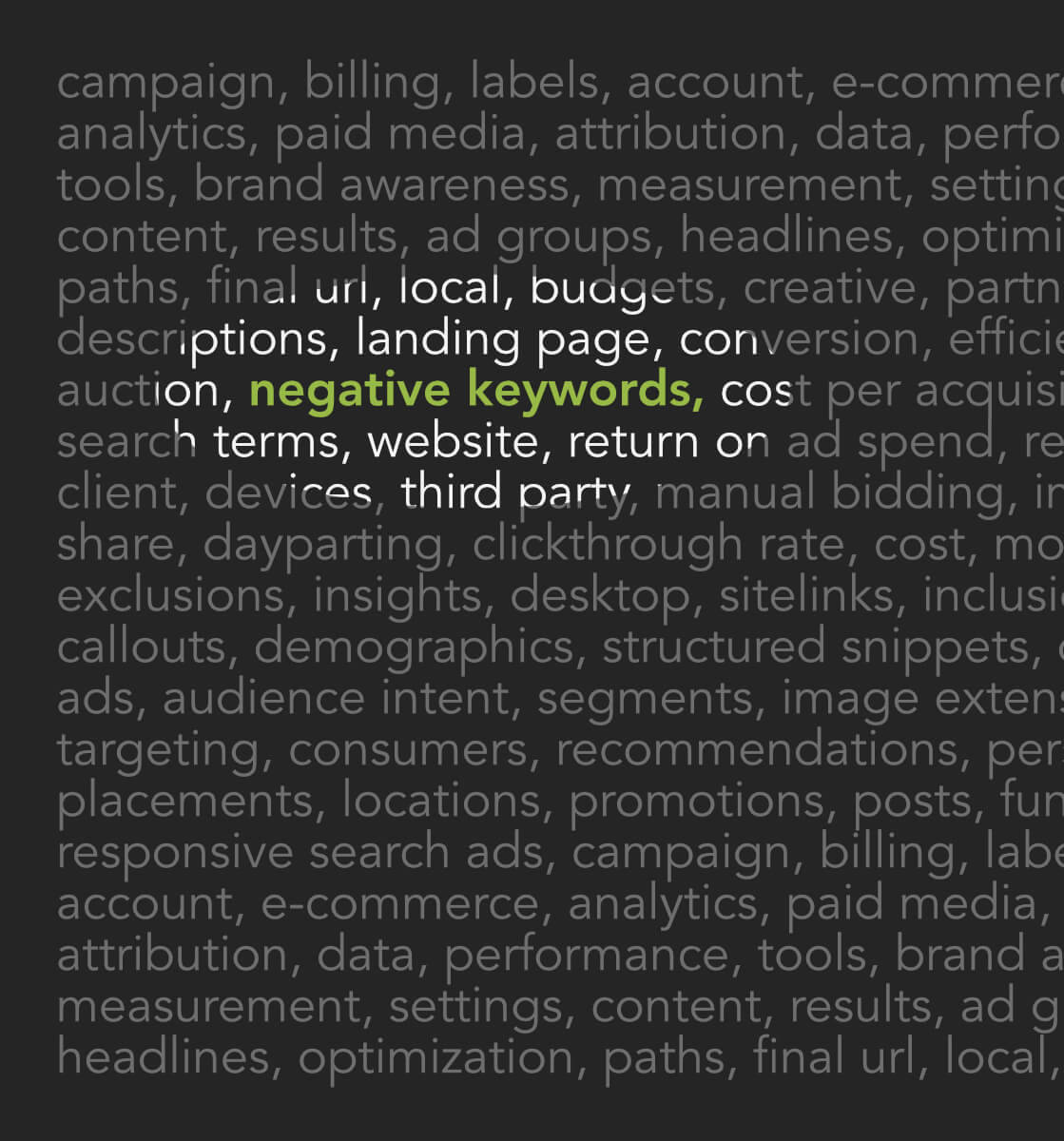Mehvish graduated from the C.T. Bauer College of Business with a Bachelor’s in Marketing. She primarily enjoys the graphic design and content writing aspects of the field, and is always looking to expand her knowledge on the world of search engines. Outside of digital marketing, Mehvish enjoys creating stylized portraits on Affinity Designer, playing guitar, exploring new subgenres of music, and video games
With PPC and paid search, the keywords you configure in your ads help narrow down the user intent when searching on search engines. As your program grows and gathers data, campaign results become convoluted by search keywords that are irrelevant. In addition, certain ad groups’ keywords can conflict with one another.
Google says that using negative keywords help prohibit certain search queries from triggering your ads to appear (to a certain degree). They further refine when your ads are shown, drawing in more relevant traffic overall.
Depending on your campaign goals, they can be applied on the account level, campaign level, and ad group level. Similar to regular keywords, negative ones have different match types; broad, phrase, and exact.
Negative keywords work in the same way, however, Google cautions that negative keywords “do not match to close variants.” This includes abbreviations, reordered phrases, misspellings, synonyms, and more. Keep this in mind when creating your list.





